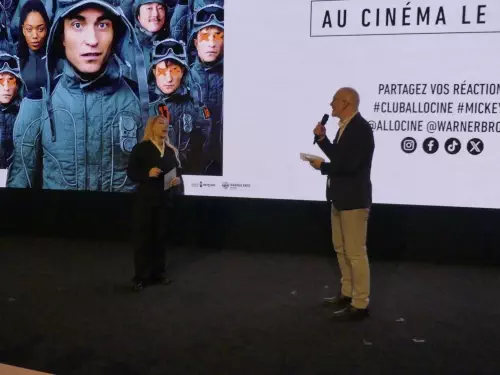
MindsEye, from passe Rockstar builders, wants to revive the tight, linear, cinematic blockbuster game
There’s a moment in the latest MindsEye trailer, unveiled today alongside news of its midsummer launch, that feels strikingly familiar. As brilliantly billowy explosions erupt, muscle cars navigate through traffic and machine guns fire away, a helicopter swoops down over the scene, sunlight dramatically illuminating the backdrop. The reflection of a city, intensely captivating above more racing vehicles and scorched pavement, glimmers off the surface of its ultra-sleek fuselage. This is the future of video games, that reflection seems to whisper. However, it’s a distant vision as envisioned in 2013, where the pinnacle of the craft still entails bombast, polish, and hyper-realism – and crucially, a question of how accurately it can recreate another medium, that of cinema. In simpler terms: a realm where the future resembled Grand Theft Auto.
The developers at MindsEye studio Form a Rocket Boy would likely prefer to avoid these comparisons. In conversation with Adam Whiting, assistant game director at BARB (and previously associated with GTA’s Rockstar North), the shadow of GTA still looms large, especially considering studio founder Leslie Benzies’ history as president of Rockstar North. Nevertheless, Whiting thrives when discussing MindsEye’s distinct, almost retro approach to linear storytelling.
Since GTA 5 made a huge splash in the early 2010s, a gradual pushback has emerged against the once-ubiquitous ambition of games aspiring to be more cinematic. Despite the lingering grandeur of the conventional six-hour Call of Duty campaign, the era of nearly-railroaded action films like Uncharted is largely behind us, as we stand in 2025, with the GTA future having taken a turn towards open worlds, shared spaces, battle royales, and user-generated content (UGC), showcasing a wide array of narrative forms that video games can adopt, rather than striving relentlessly to become the ultimate playable film. Even the seemingly endless journey of 2018’s God of War – easily overlooked as a key selling point at the time – would probably provoke more eye-rolls than gasps if it were given the same marketing spotlight today.
Undeniably, this pluralism is a positive development. However, the reality is that like all broader trends, these never fully dominate or completely fade away, and for Whiting, the pendulum may have swung just a touch too far in one direction. “Ultimately, games are wonderful mechanisms for telling profoundly meaningful stories, deeply impactful narratives, and stories that players can immerse themselves in due to their interactive nature,” he stated.
“I think there are ways to capture an audience with a video game that you can’t quite achieve with a film or a TV show, because you’re not passively observing; you’re actively engaging with the characters and the storyline, and I believe there’s something genuinely powerful about that.”
This is partly where the distinctly retro aspect comes into play with MindsEye. The game is on the shorter side, by industry standards, clocking in around 15 hours, and despite what the team has referred to as a type of “pseudo-open world” elsewhere, it is, in reality, a linear narrative. This sentiment is becoming increasingly familiar as the pendulum slowly begins to swing back again – S-Sport, the studio behind the upcoming Phantom Blade, expressed a similar sentiment to us just a few days ago.
“I recognize that the landscape has shifted, and you know, games are so costly to produce that I think developers are trying to create large live service games,” Whiting remarked.
“But I think there’s value in crafting a truly meaningful, well-paced, well-structured story that players can lose themselves in, one that features moments of tension, character growth, heartfelt experiences, as well as instances of spectacle and drama,” something to enjoy after “a long day at work—or whatever it is you’re occupied with—just relaxing at home while engaging with something that offers a meaningful, well-paced narrative that respects your time as well.”
Part of this may also be attributed to where developers choose to focus their attention, as he suggests, hinting that as studios have distanced themselves from cinematic inspiration, they might be losing something valuable. While he agrees there was, “years ago, this notion of trying to emulate films, aiming to make things feel cinematic, because that was seen as a more ‘legitimate’ art form,” as he puts it, “I think now we’ve swung too far the other way. I love cinema and films, and I believe many do as well. There’s merit in framing and how we manipulate the camera, both in cinematics and gameplay.”
An aspect of this is that in video games, “you can position a camera anywhere. However, this can also lead to oddities that might bewilder your brain because we’ve been conditioned to perceive shots and angles based on physical camera placements, right? And while it’s always fascinating when a great cinematic auteur…
